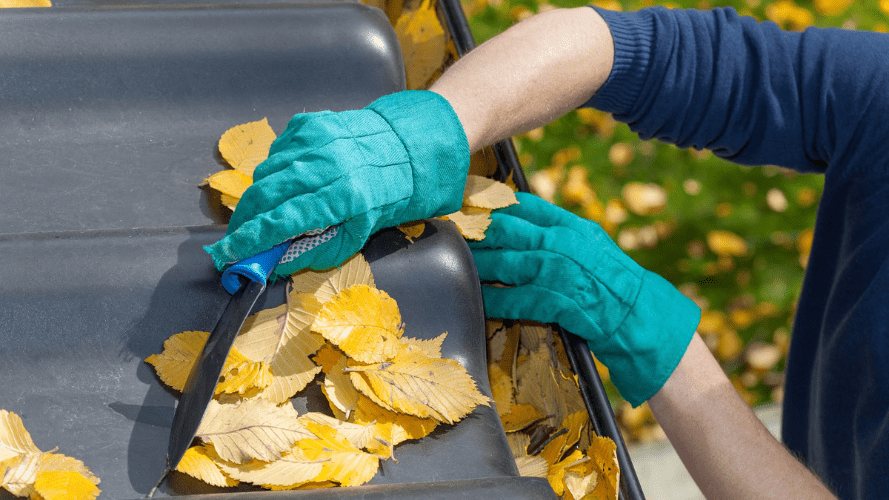As a landlord, you must keep your property in good condition for several reasons.
It means you can provide tenants with a safe, habitable living environment (which they're entitled to by law), reduce the number of costly repairs you'll need to carry out over time and enable your house to keep its value.
The latter factor is essential if you ever come to sell your home in the future and want to make a decent return on your investment.
With the importance of the condition of your property in mind, here are some top tips for keeping your rental home in the best possible shape.
Take decisive action. While it can be tempting to leave a problem to save money, issues like damp, mould and broken gutters won't go away of their own accord and will likely cost you significantly more to remedy if you don't act quickly.
Don't be afraid to shop around. It's never wise to cut corners and pay a lower amount for shoddy or substandard work, but that also doesn't mean you have to pay top dollar. It's a pragmatic move to get plenty of quotes from reputable tradespeople to ensure you're getting the most cost-effective service. As well as phoning and meeting tradespeople in person, there are now specific websites which enable you to get quotes at the click of a button.
Service regularly. You must frequently service your boilers and cookers to ensure they are working as they should be and are completely safe for your tenants. Regular services can also reduce the chances of anything going wrong in the future.
Invest time and money. To keep your property in good condition, you need to dedicate enough time and be willing to pay for its upkeep regularly, saving you money in the long term. It's advised to set aside three months' rent to cover emergencies or void periods. It's also important to remember that older properties generally require more maintenance.
Develop mutually beneficial relationships. You're likely to regularly work with the same tradespeople when renting out homes. Try to keep your professional relationship friendly and productive. You should also try to build up a few contacts to ensure you have someone to turn to if your regular person can't handle the job or is temporarily unavailable.
Conduct inspections. As a landlord, part of your role should be to inspect your property regularly, with tenants not always aware of how to carry out basic maintenance on a home. In some cases, they won't tell you about problems until after they leave the property. Therefore, regular checks help give you a good idea about the state of your property and enable you to conduct preventative maintenance if required.
A recent change to the law
Maintaining a property in good condition took on an even greater significance for landlords in 2019 when the Homes (Fitness for Human Habitation) Act came into force. The Act ensures that all rented accommodation is fit for human habitation and strengthens tenants' means of redress against the few landlords who flout their legal obligations to keep their properties safe.
It amended the Landlord and Tenant Act 1985 to require all landlords to keep their properties in a state fit for human habitation at the beginning of the tenancy and throughout. The Government hopes this change will drive up standards in the private rented sector by empowering tenants to act against their landlords where they feel the property has been inadequately maintained. Unlike before, tenants no longer need to lean on their local authority to hold their landlord to account.
For a more detailed breakdown of the Act, the stages it's being introduced in, and how you need to comply, this Government guide for landlords will provide all you need to know. We also looked previously at the progress of the original bill and its consequences for landlords.
A home could be deemed unfit for human habitation for several reasons, including:
- Problems with drainage and the supply of hot and cold water.
- Issues such as damp, overcrowding and a lack of ventilation.
- A building that is structurally unstable or with unsafe layouts.
- A property that is neglected or in bad condition.
- A property that doesn't provide sufficient natural light or enough space to prepare and cook food or wash up.
Additionally, if a home contains any of the 29 hazards outlined in the Housing Health and Safety (England) Regulations 2005, the courts are likely to decide that it's not fit for human habitation.
On the other hand, there are several scenarios where you won't be held responsible for an unfit home, including issues by acts of God (such as fires, storms and floods), where the tenants' own possessions have caused the problem and when tenants themselves are responsible for the unfitness of the home.
Section 21 and repairs
As part of changes to Section 21 notices that took effect from October 1 2018, landlords who fail to follow the prescribed and time-limited repairs process set out can invalidate a Section 21 notice and prevent one from being served for six months.
Though serious plans are underway to scrap Section 21, so-called no-fault evictions altogether, which means landlords' rights and obligations when it comes to repairs and serving eviction notices could shift again.
To avoid this ever being an issue, though, you are advised to keep your property in an excellent state of repair to ensure problems with property maintenance are something you never need to concern yourself with.
Enjoying our content?
Get the latest letting news, views and tips from HomeLet straight to your inbox.

